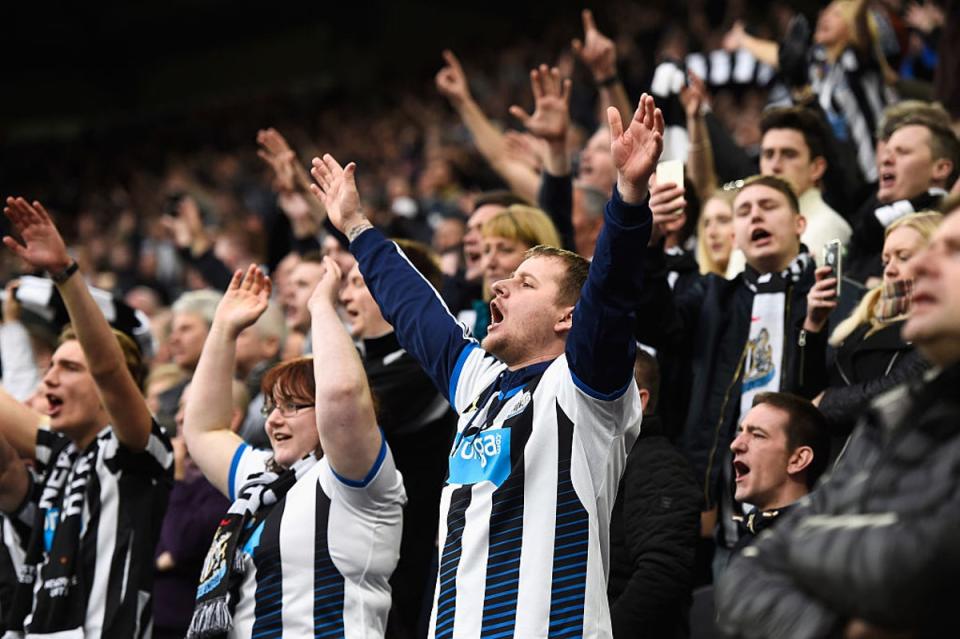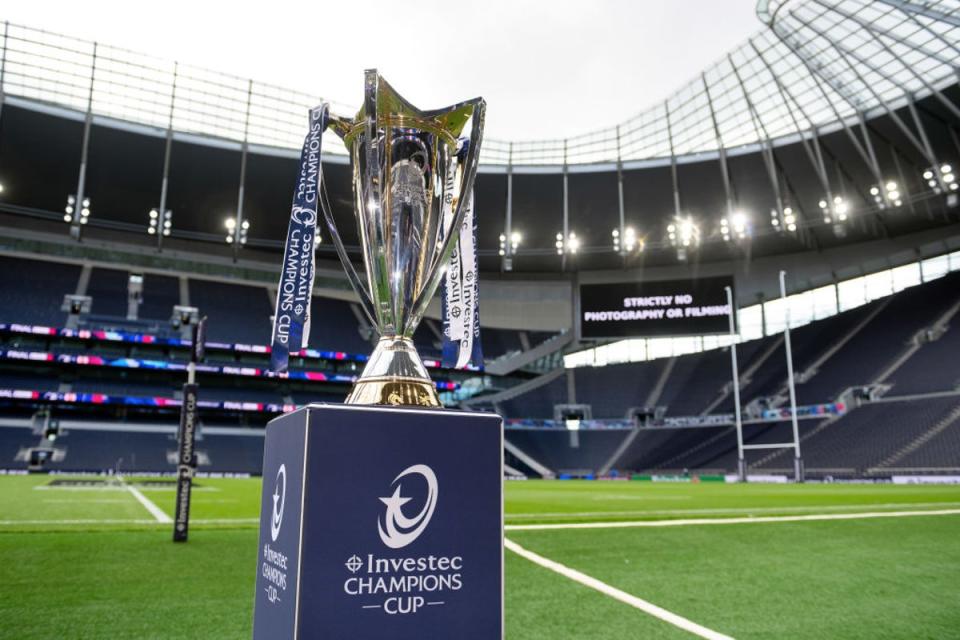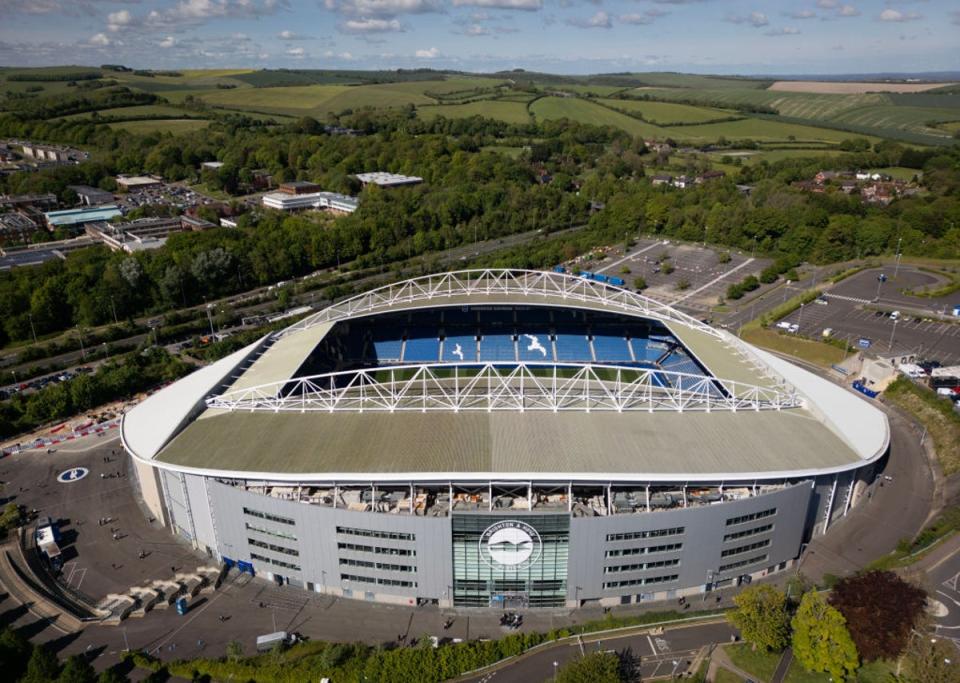It’s a refrain that many First League executives were resigned — at least in some areas of the country. As part of summer negotiations with foreign players, they were repeatedly told that “he would prefer to live in London”. Internal research at a Championship club found that, on average, those outside the capital had to offer around £2,000 more a week to persuade signings to leave London.
This is a modern, more widespread version of what used to be known as “Newcastle United premium”. More than 20 years ago, when the St James Park club were trying to compete adequately with rivals from London and the North West, they became known for some of the Premier League’s biggest contracts. Kieron Dyer was considered the highest paid player in the division. This dynamic has evolved dramatically, almost splitting the Premier League.
It’s not just that players gravitate towards London. The geographic center of the competition has also completely changed.
For the third consecutive season, the Premier League will feature seven clubs from London, as well as three more from the counties around the capital or further south.
It was part of a longer trend and a much more pronounced change. To fully understand this, just consider that, as recently as 2012, England’s top flight only had five clubs from London or surrounding areas. The proportion has generally hovered around this level, between 25 and 35 percent of 20, for most of the Premier League’s existence. Now, half the competition has a distinct southern flavor, with the predictably used music of The Clash Call in London being heard more than ever.
This genuinely represents a huge shift from modern football history, but also a great football story. The birthplace of English football dating back to the mid-19th century was the north, and the heart of the 20th century, the north-west. Lancashire alone offered six of the 12 founding members of the English Football League in 1888.
In 1892, all 28 clubs came from the center or north. It could almost be said that we are now simply seeing clubs like Brighton, Brentford, Bournemouth, Crystal Palace and Fulham replacing the likes of Blackburn Rovers, Bolton Wanderers, Wigan Athletic, Sheffield Wednesday and Sunderland as “Premier League fixtures”. Except there are much bigger reasons for this.
The book Soccernomics, by Simon Kuper and Stefan Szymanski, concluded that the historical conditions of football in England favored regional industrial centers. This was largely due to the fact that cities had working-class populations large enough to support one or two successful clubs, whereas London was more fragmented.




Similar forces have now begun to reverse this situation. Government officials working on football, especially with regard to community influence, have compared the current dominance of football superclubs to the way globalization has created vast urban centers like London or New York that attract exponential numbers of people and wealth. . It is extreme centralization. Now, though, that same dynamic is influencing the game as much as echoing it.
The biggest amount of money flowing into London is inevitably flowing into London football.
Clubs in urban centers where the population is wealthier inevitably offer advantages. Far from fragmenting fan bases, as London’s demographics did to its clubs for a century, they are now strengthening their support.
Premier League games have seen rival clubs complain that they need to increase ticket prices specifically to keep up with the capital. This is also important for investors and potential owners, who are naturally more willing to put their money in financial centers, where there are more sophisticated networks. Those in football finance circles say an increasing number only want to buy around London.
One of the reasons Clearlake Capital was so interested in buying Chelsea it was because they understood that a big gaming night in the capital could attract some of the most powerful figures from across the most influential industries. Consequently, they quickly drew up designs for an open-plan executive box area at Stamford Bridge, as many American sports franchises have done. Meanwhile, rival executives constantly praise Tottenham Hotspur for maximizing the commercial potential of its location through the stadium. The view is that it is deeply impressive to exploit an advantage for a club that does not necessarily have the historical profile to generate such revenue.


While all of these factors represent broader financial benefits linked to the game’s modern commercial perspective, there are also benefits directly linked to the players themselves.
These transfer negotiations went beyond foreign signings, simply wanting to live in an English city with a more continental feel and with more flights to their home countries. There’s also London’s exact status as an alpha-plus global city.
Social media is genuinely important in this regard. A chief executive of a London club talks about how his players are genuinely motivated by posting Instagram posts of stylish locations. London is perfect for this. It is cited as a surprisingly influential factor for a younger generation, which is why Barcelona and Real Madrid will always have an attraction to go along with their historic status.
On the other hand, Fulham, Brentford and West Ham United tried to further leverage their location. For a long time, Fulham presented itself as a friendly club where tourists could enjoy a day trip, with a neutral ending. West Ham United specifically decided to put “London” on their crest for this reason. There are many more potential floating football fans to attract, as well as a huge and ever-changing population of expatriate workers, who may well be interested in following a local team.
Even clubs like Brighton took advantage of the benefits of this to complement their recruitment model. Negotiations go much smoother when they can let players know they are so close to London.


Reading are also seen in football circles as having huge potential should Dai Yongge decide to sell. They have ready facilities but also a distinct proximity to Heathrow. This is extremely attractive if you are an investor with a lot of international business.
That’s why some game participants are talking about a Premier League move both south and to the capital. The extent of the city is so vast.
Those in Arsenal I would undoubtedly say that a clear evolution of this trend would be for the North London club to finally win its first title in 21 years, and the capital’s first in eight years. This is the longest period the city has been without a league since Arsenal’s drought between 1971 and 1989.
Football doesn’t necessarily follow these trends so well, of course.
Liverpool and Manchester United have managed to transcend their locations through their historical legacies and global fan bases. Manchester City are looking to do the same through ownership ambition. The trophy could end up in the northwest again and remain there for some time. If that happens, however, the journey to victory will likely involve many more games in London.


































/cdn.vox-cdn.com/uploads/chorus_asset/file/25475536/514969767.jpg?w=150&resize=150,150&ssl=1)